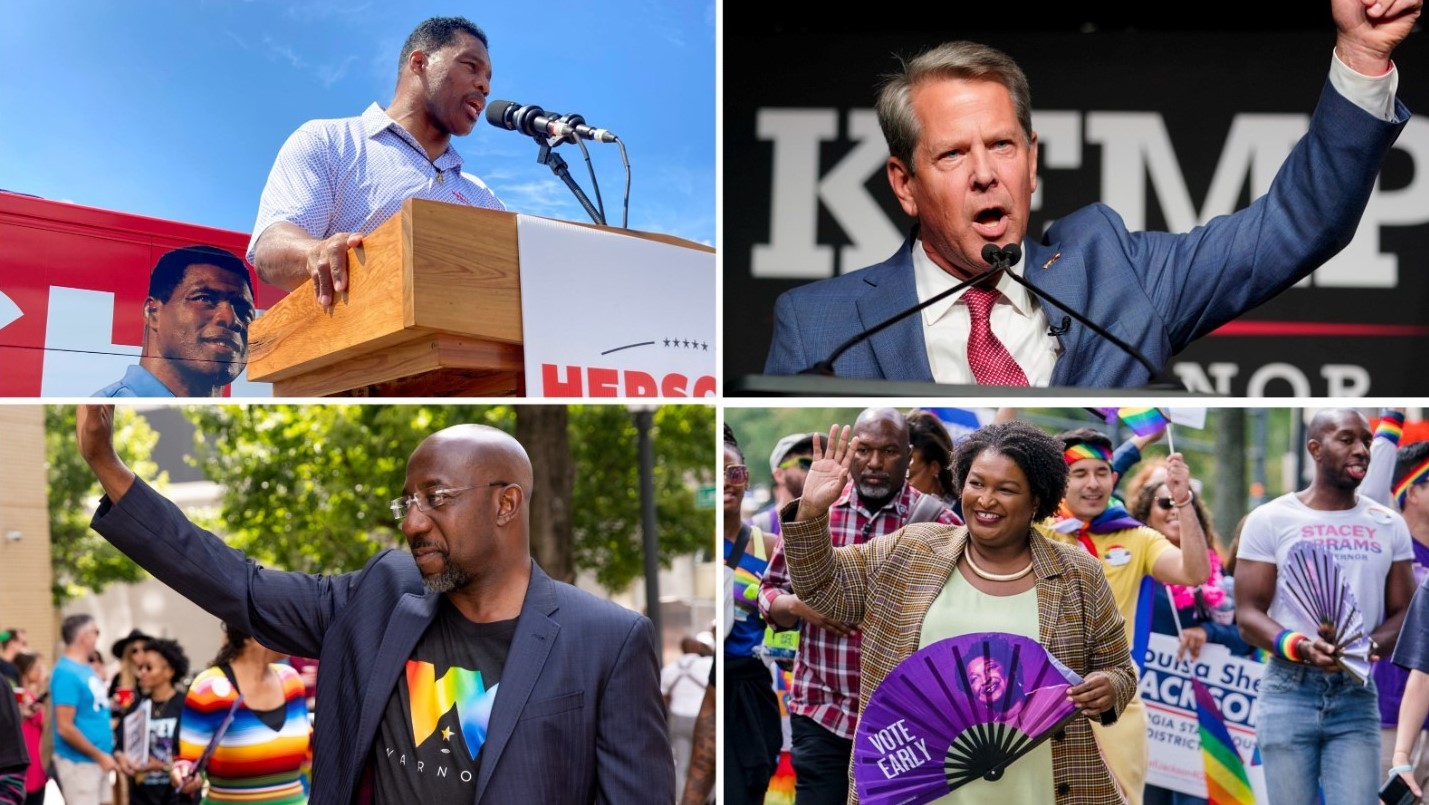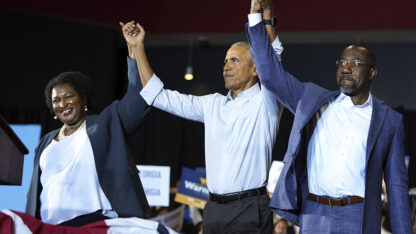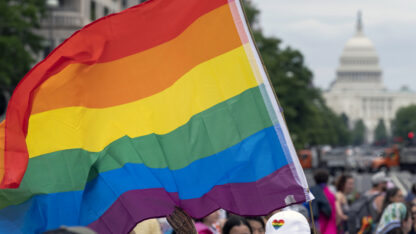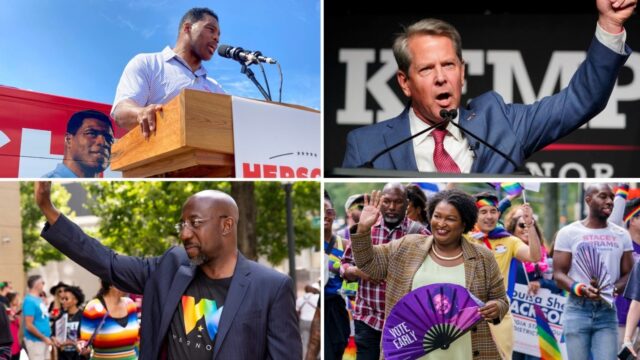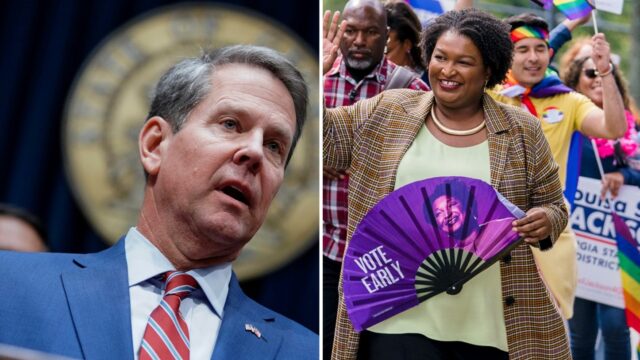At a U.S. Senate debate earlier this month in Midtown Atlanta, Libertarian candidate Chase Oliver was asked, as Georgia’s first openly gay Senate candidate, what LGBTQ protections Congress needs to adopt.
Oliver noted his support for federal LGBTQ anti-discrimination protections, but then pivoted to mention how the Republican candidate for the seat has been “demonizing LGBTQ people.”
“You know I hear all day long from folks like Herschel Walker about how terrible LGBTQ people are, about how they’re destroying our children,” Oliver said. “The fact is I was a gay child at one time and I was thankful that I had supportive teachers and supportive people in my life that could help me as I was growing up, and I don’t want to do away with that.”
Oliver added that he and his fellow debate participant U.S. Sen. Raphael Warnock “will absolutely stand for LGBTQ people.” Walker did not show up for the debate and was represented by an empty lectern.
Oliver’s comments highlighted how, in the final weeks of the midterm elections, Republicans at the top of the ticket in Georgia have risked antagonizing LGBTQ voters and allies moreso than usual.
Walker refuses to answer questions about his stance on same-sex marriage, routinely misgenders transgender women in his stump speech and at two recent campaign events he blasted the prospect of transgender people in the military and questioned whether God would recognize transgender children when they get to heaven.
In one week in September, Gov. Brian Kemp — who’s facing Stacey Abrams in a rematch of their 2018 race — was a featured speaker at an anti-LGBTQ hate group’s conference and appeared at an event for another group he’s endorsed by that says LGBTQ people are abnormal and are trying to “groom” children.
This comes in the same year that Kemp signed one measure into law that expedited the school book banning process — which typically targets LGBTQ content — and another measure that banned transgender high school athletes from playing on the teams that match their gender identity.
A risky strategy?
The GOP strategy of potentially further alienating LGBTQ voters and their allies as early voting continues and the sprint to Election Day nears raises questions considering the weight of the LGBTQ vote and the narrow margins in recent elections in Georgia.
LGBTQ voters made up 9% of the nearly 5 million people who voted in Georgia in the 2020 general election, according to an Associated Press VoteCast analysis conducted by the nonpartisan research organization NORC at the University of Chicago. President Joe Biden won the state by just 12,000 votes. And Kemp beat Abrams by just 55,000 votes in 2018.
The statewide LGBTQ rights organization Georgia Equality has raised a record $1 million this election cycle to get those voters and allies to the polls.
“I do believe that LGBTQ and equality voters will be more motivated because we have had a lot of people expressing concerns about the future of the freedom to marry, the future of transgender rights, access to healthcare, access to health care for transgender folks as well as people with HIV and AIDS,” the group’s executive director Jeff Graham said.
From quiet support to open embrace
Meanwhile, Democrats at the top of the ticket in Georgia have been eager to highlight their LGBTQ records and have been attending numerous LGBTQ events, which hasn’t been the case until recent years. As recently as 2014, the Democratic nominees for Georgia’s two U.S. Senate seats stayed relatively quiet on LGBTQ issues and avoided most high-profile LGBTQ events like Atlanta Pride during their campaigns. Both lost.
There was a marked shift in the Democrats’ open embrace of the state’s LGBTQ voters in the 2018 midterm elections, when Abrams became the first major party gubernatorial candidate to speak at Atlanta Pride and march in the Pride parade. She was joined in the parade by several other Democratic candidates for statewide office and dozens more for other offices.
This year, nearly every Democratic candidate for the state’s top offices took part in the Atlanta Pride parade, including Abrams again and for the first time a U.S. senator from Georgia — two in fact, Warnock and Sen. Jon Ossoff.
“Georgia Democrats are strongly committed to engaging the LGBTQ community across Georgia and making sure LGBTQ voices are elevated in our party,” said U.S. Rep. Nikema Williams, chair of the Democratic Party of Georgia. “Georgia Democrats will always work to uplift the LGBTQ community year-round and all across the state.”
The Georgia Republican Party did not respond to questions about any outreach it’s doing to LGBTQ voters.
Kemp and Walker’s campaigns did not respond to multiple requests from WABE for an interview on LGBTQ issues.
We take a look at the LGBTQ issues at play and where the candidates in the top two races on the ticket stand on those issues below.
